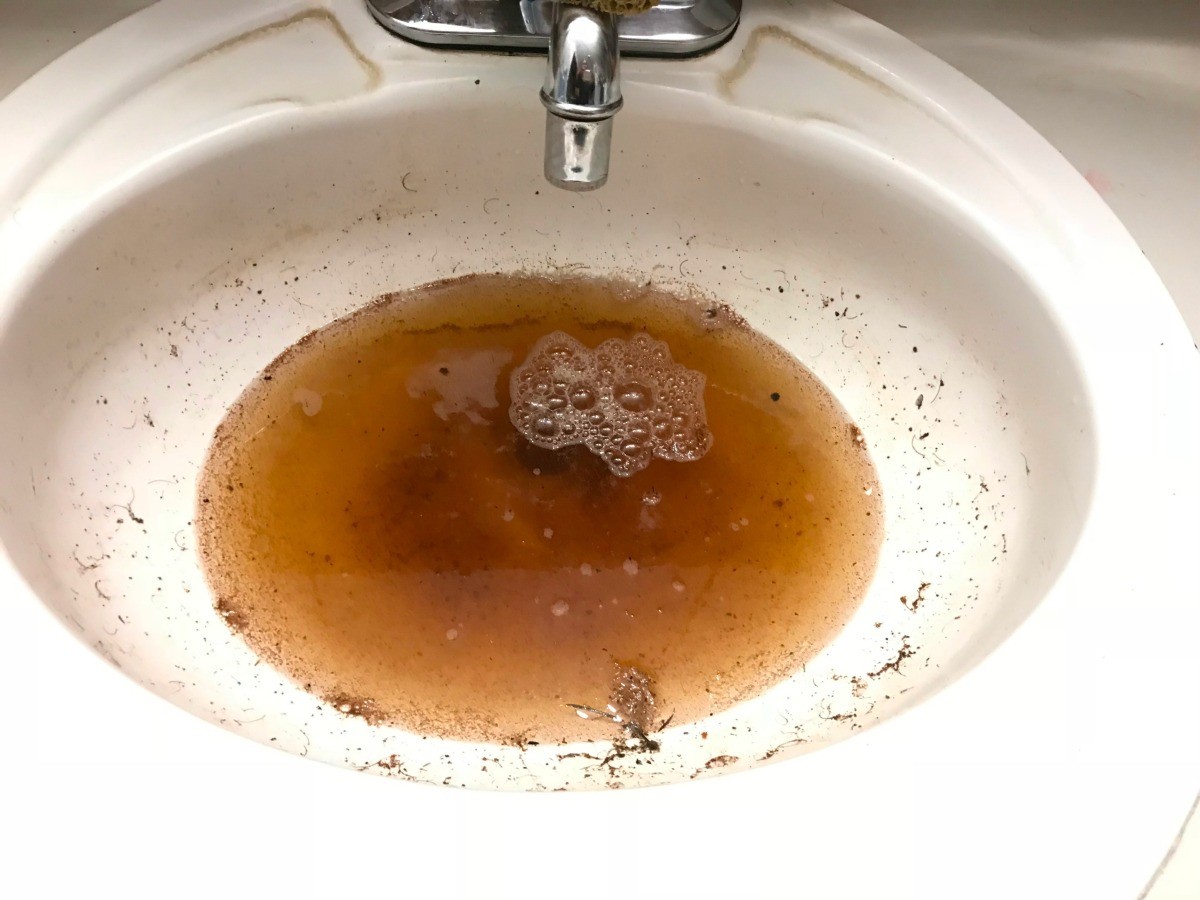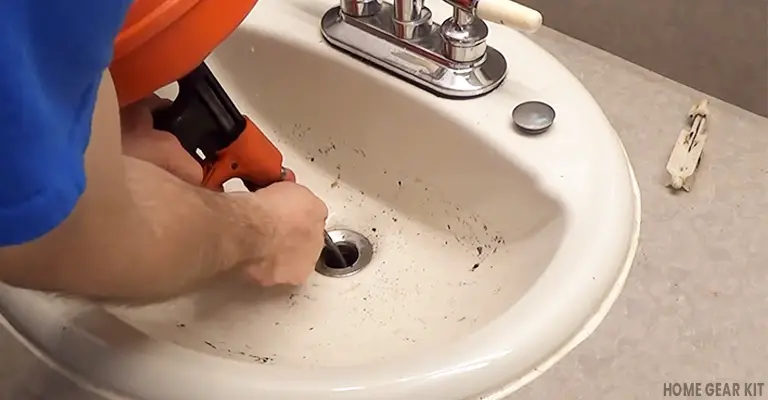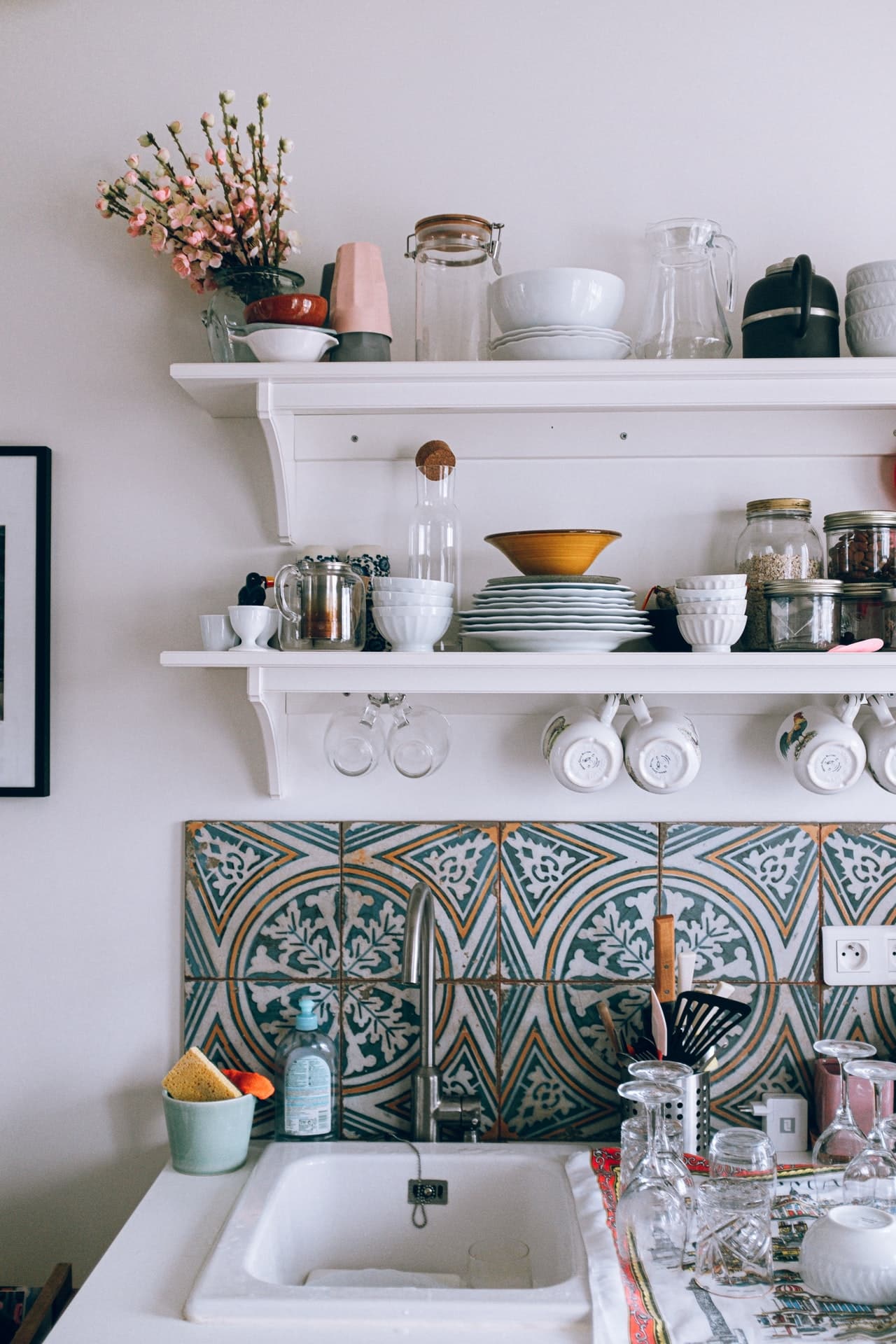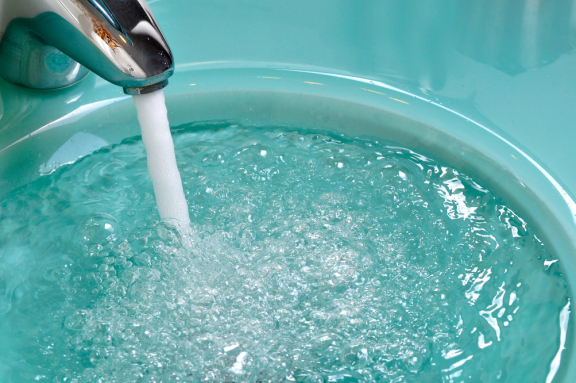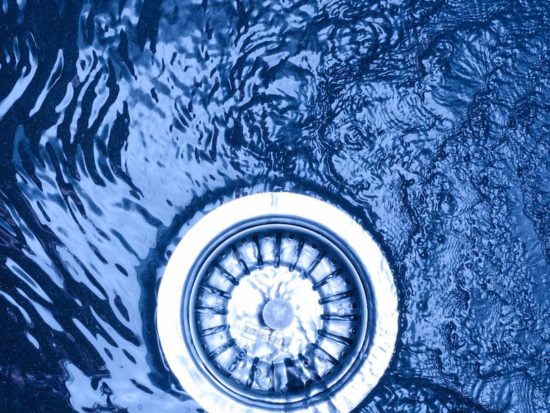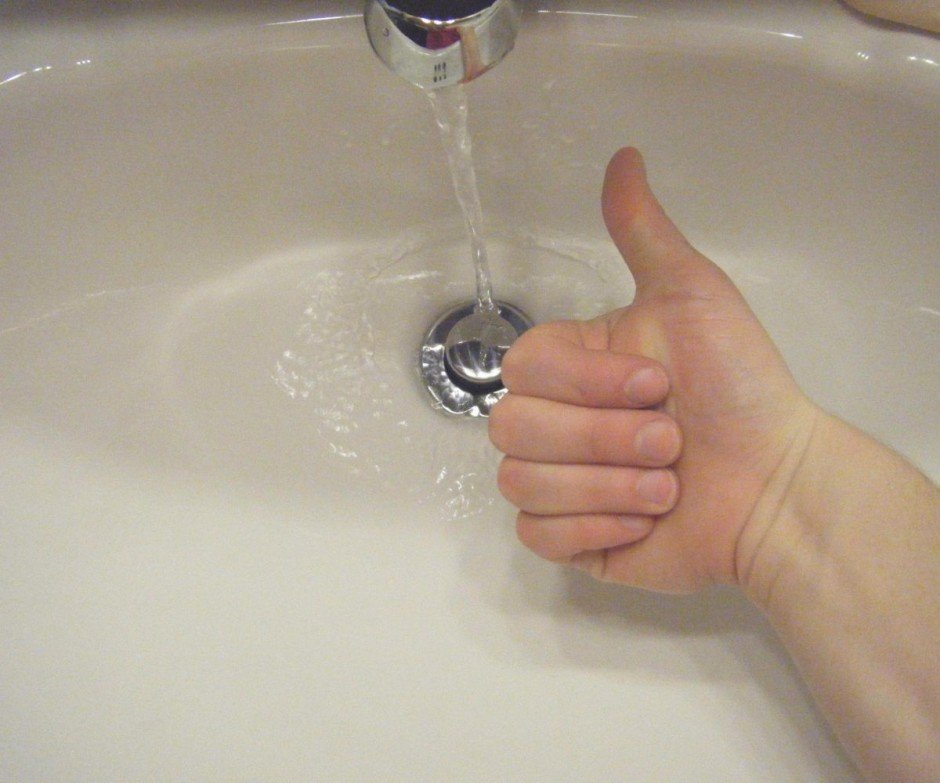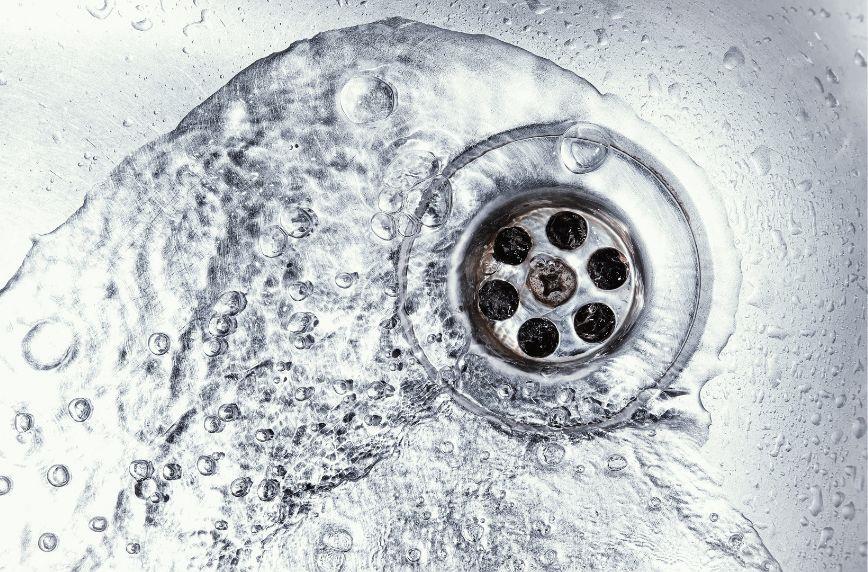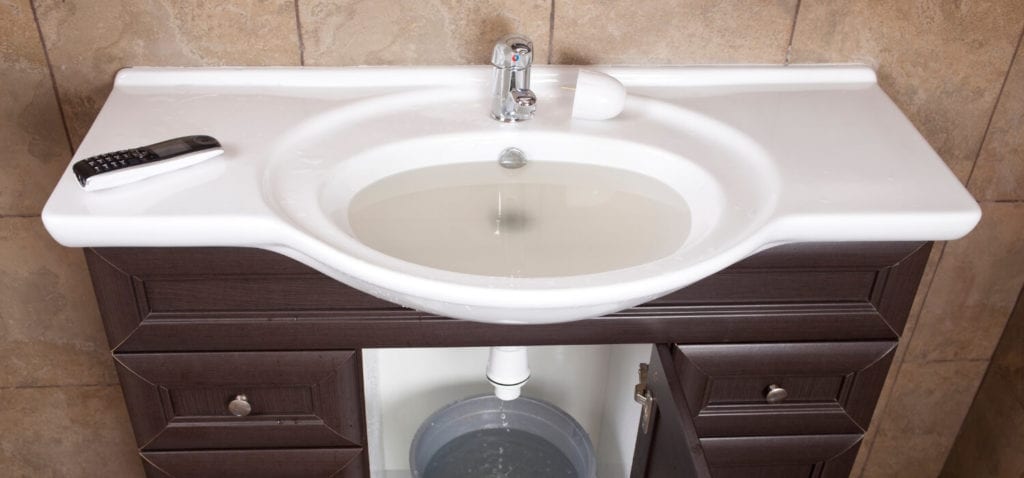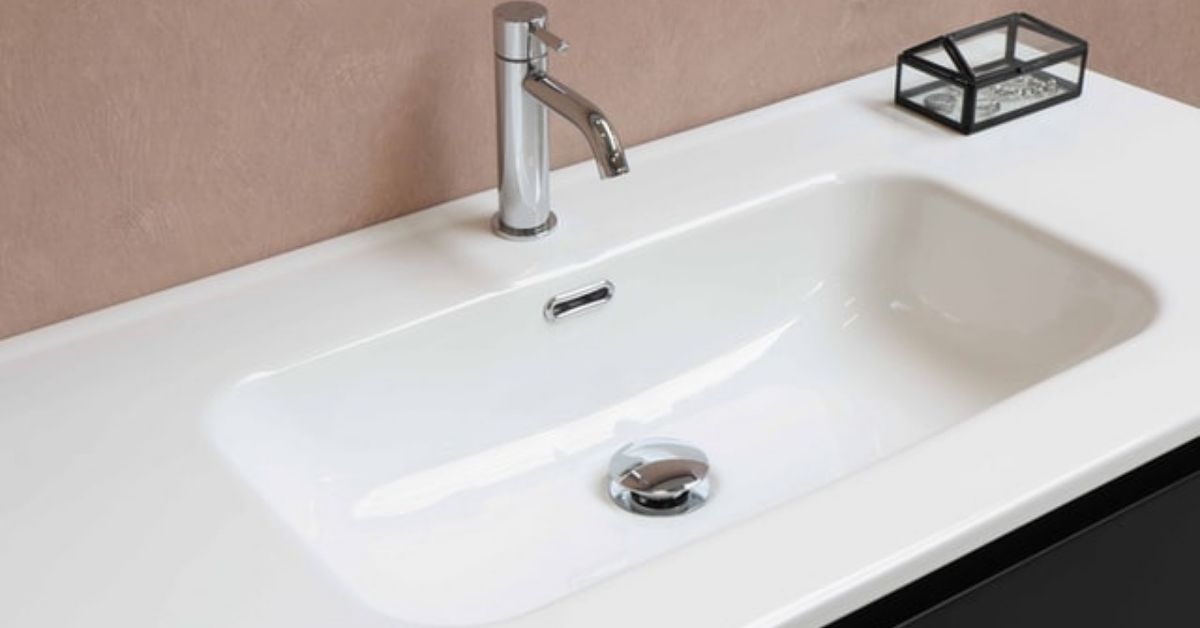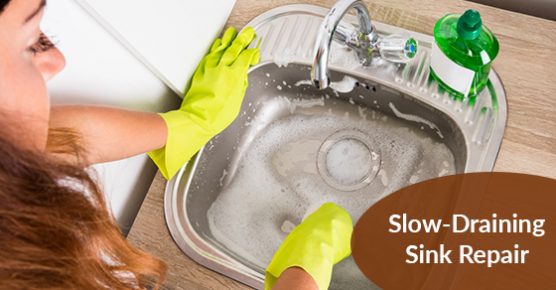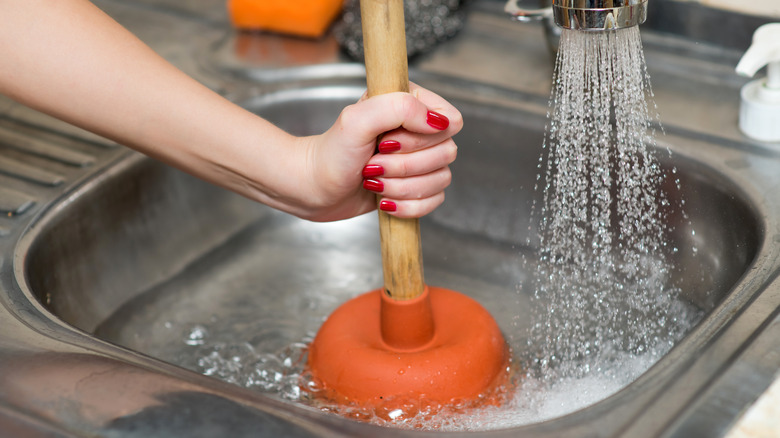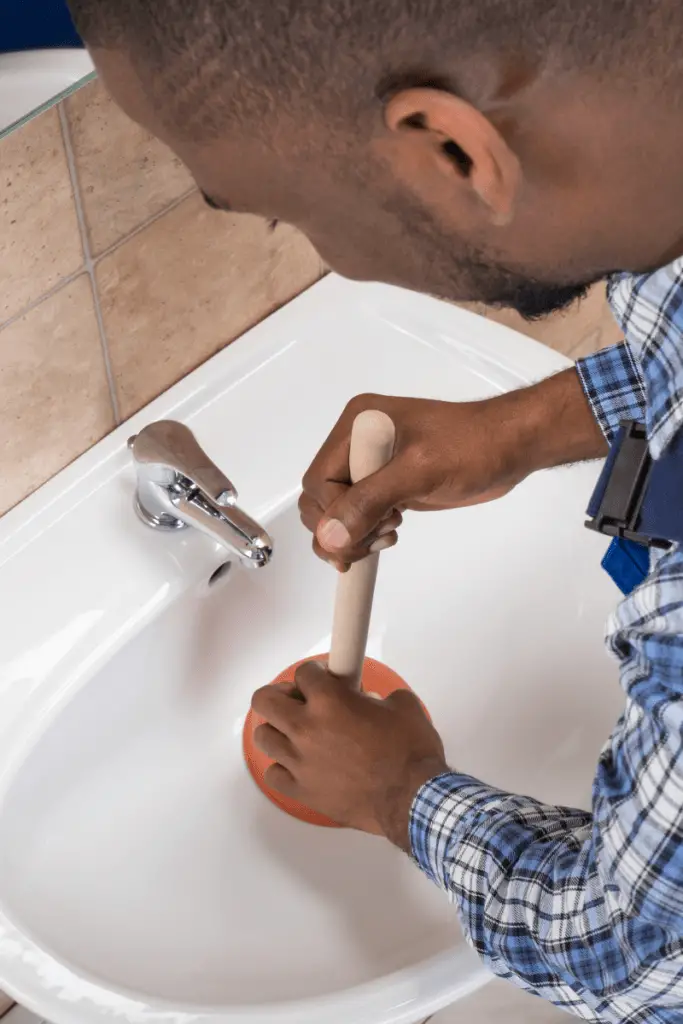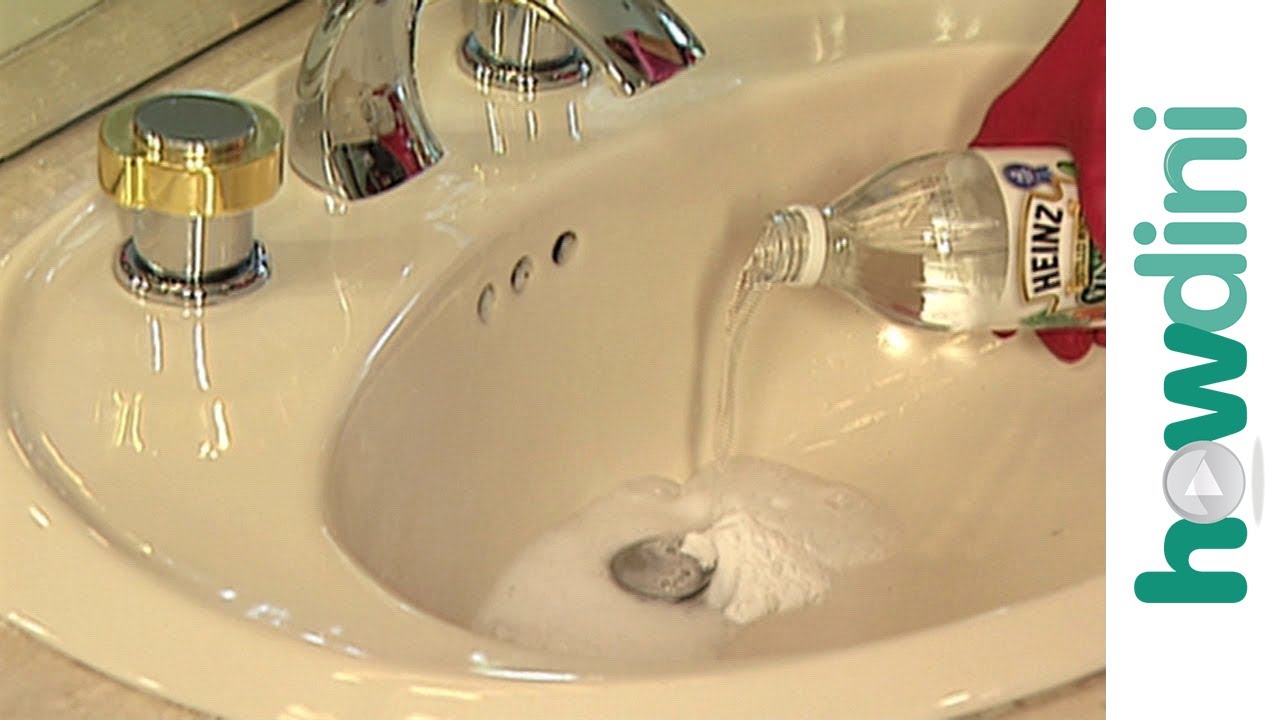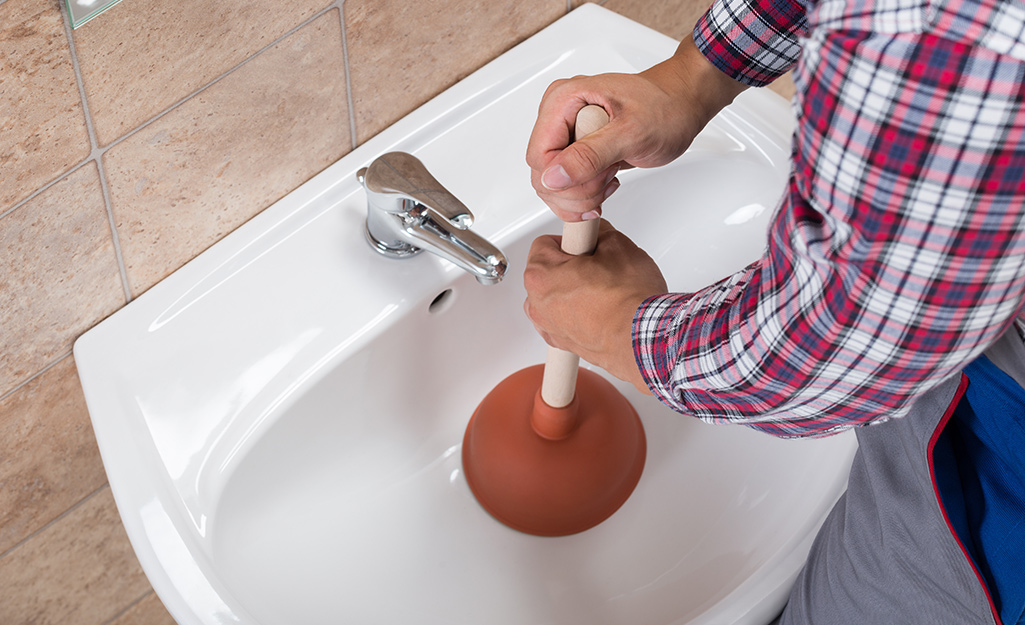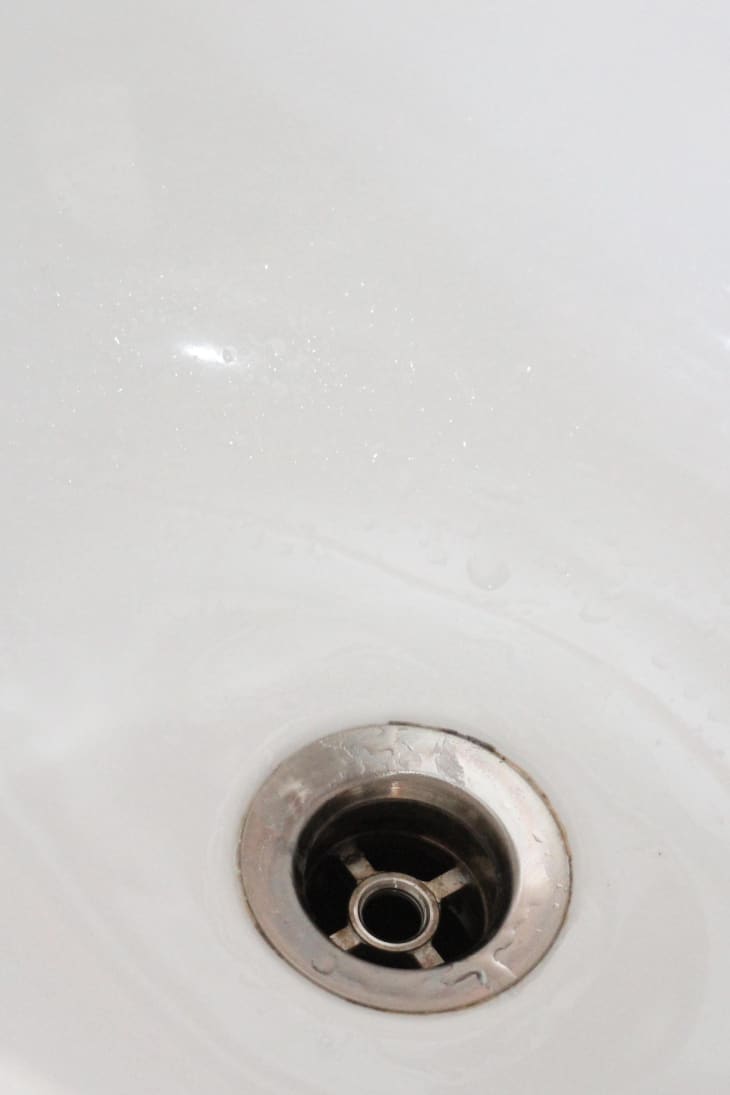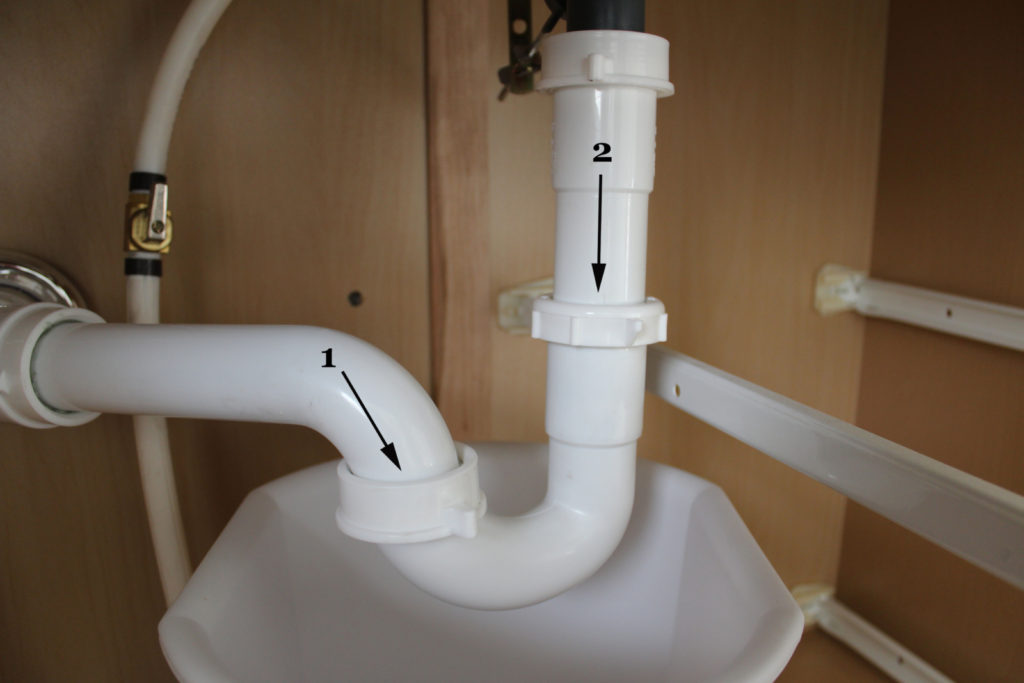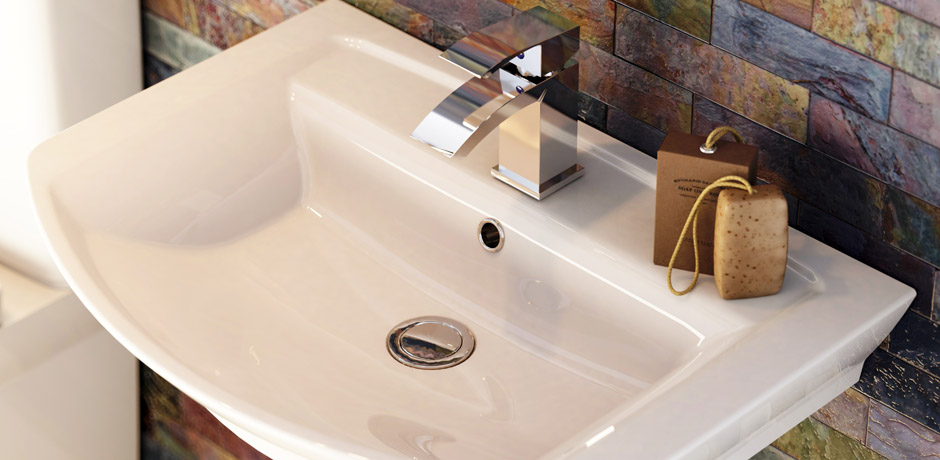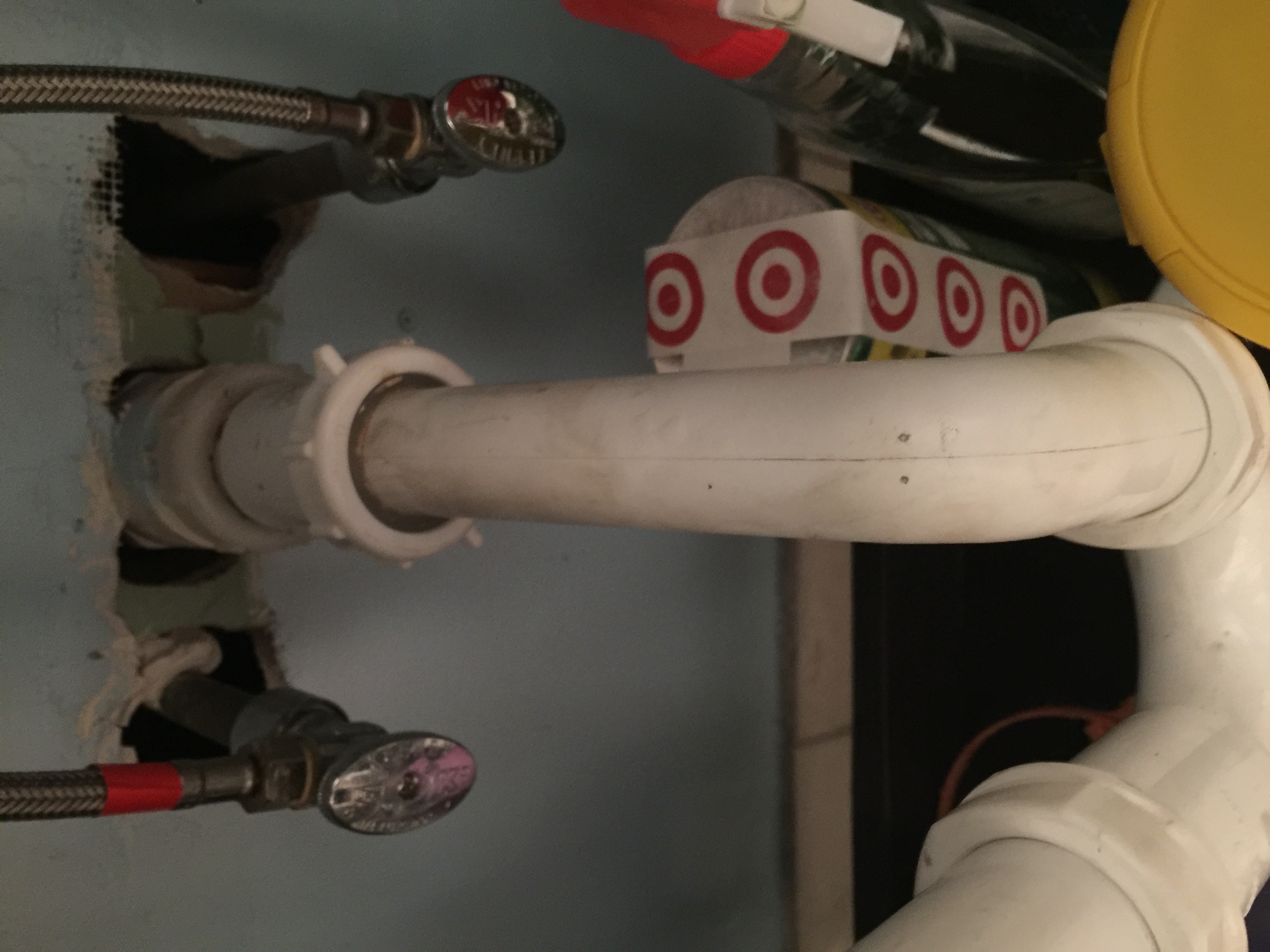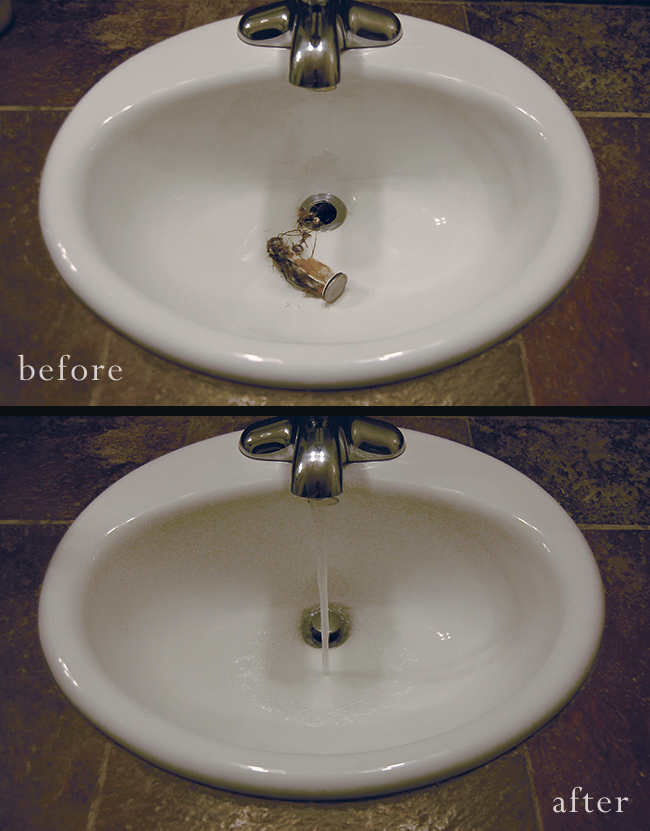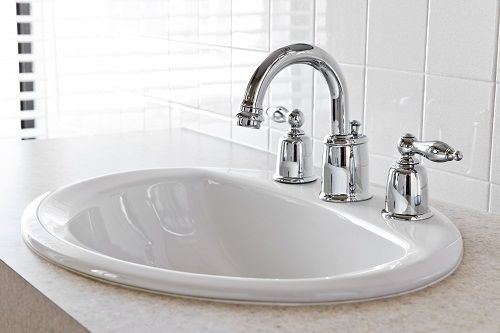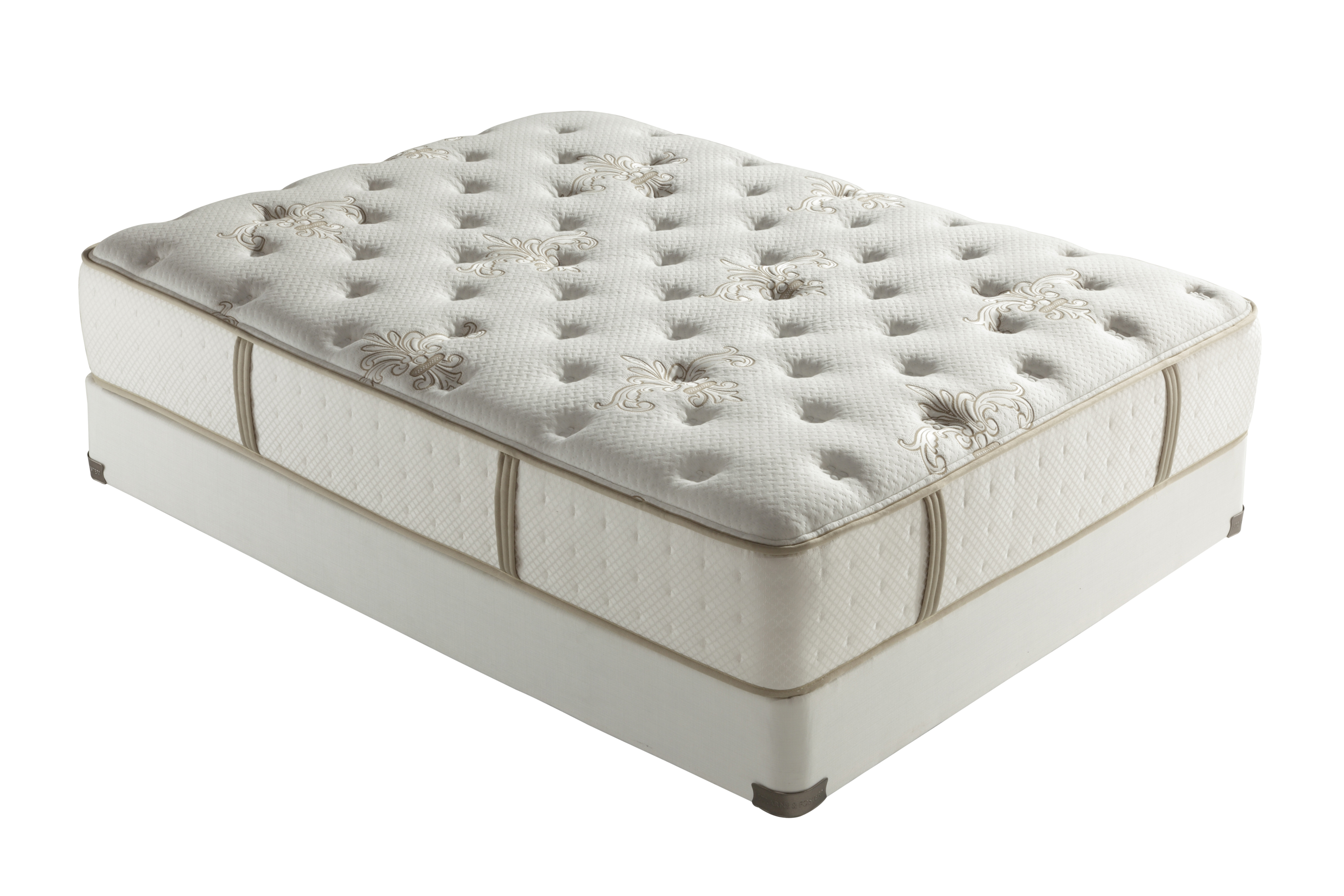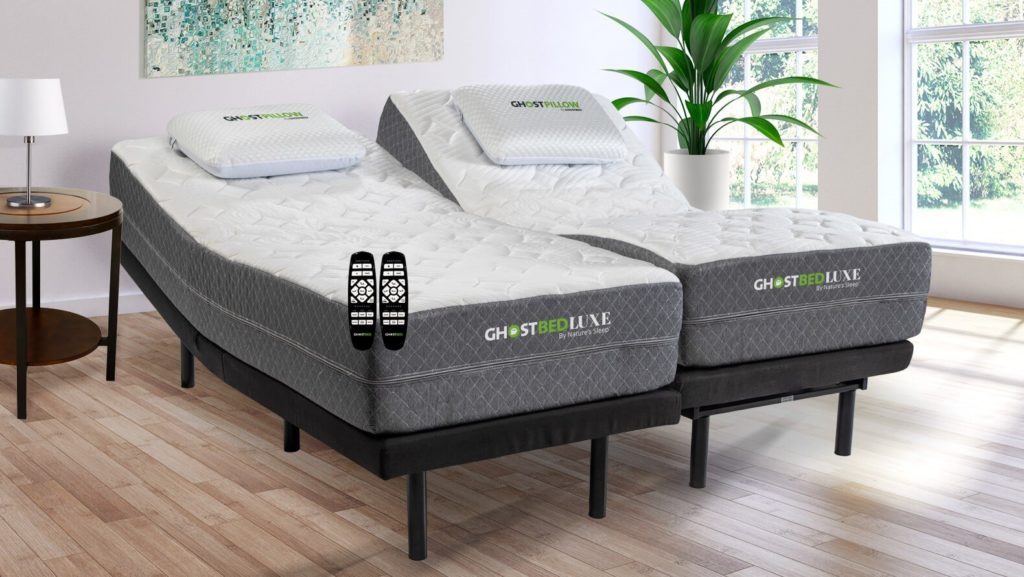Dealing with a slow draining bathroom sink can be a frustrating and inconvenient problem. It can also be a sign of a larger issue that needs to be addressed. If you're tired of standing in a pool of water every time you wash your face or brush your teeth, it's time to take action. In this article, we'll discuss the top 10 ways to fix a slow draining bathroom sink, from DIY solutions to professional help. Clogged Bathroom Sink: How to Fix a Slow Drain
One of the main causes of a slow draining bathroom sink is a clogged drain. This can be caused by a buildup of hair, soap scum, or other debris. To unclog your bathroom sink drain, start by removing any visible debris from the surface of the drain. Then, use a plunger to create suction and loosen the clog. You can also try using a drain snake or pouring a mixture of hot water and baking soda down the drain. How to Unclog a Bathroom Sink Drain
If a plunger or drain snake doesn't do the trick, there are other DIY methods you can try to clear a clogged bathroom sink. One option is to use a mixture of vinegar and baking soda, which can create a chemical reaction that breaks down clogs. You can also try using a wet/dry vacuum to suck out the clog, or a homemade drain cleaner made with vinegar, salt, and baking soda. DIY Ways to Clear a Clogged Bathroom Sink
If your bathroom sink is still draining slowly after attempting DIY solutions, it's time to troubleshoot other potential causes. First, check the sink's pop-up assembly and clean out any debris that may be blocking the drain. You can also check the overflow holes on the sink and clean them out if necessary. If these steps don't solve the problem, it may be time to call in a professional plumber. Troubleshooting Slow Draining Sinks
Here are a few additional tips to keep in mind when attempting to fix a slow draining bathroom sink: Tips for Fixing a Slow Draining Bathroom Sink
- Always wear gloves and protective eyewear when working with drain cleaners or other chemicals
- Avoid using harsh chemicals if possible, as they can damage pipes and harm the environment
- Regularly clean your sink's pop-up assembly and overflow holes to prevent future clogs
- Consider using a hair catcher in your sink's drain to prevent hair from building up
There are several common reasons why a bathroom sink may drain slowly: Common Causes of Slow Draining Bathroom Sinks
- Clogs caused by hair, soap scum, or other debris
- Faulty or malfunctioning pop-up assembly
- Blocked overflow holes
- Pipe damage or deterioration
- Improperly installed plumbing
- Mineral buildup in the pipes
Using a plunger to unclog a bathroom sink is a simple and effective method. First, remove the sink's pop-up assembly and any visible debris. Then, fill the sink with enough water to cover the bottom of the plunger. Place the plunger over the drain and push down and up rapidly to create suction. This should help loosen and remove the clog. How to Use a Plunger to Unclog a Bathroom Sink
If you prefer to use natural remedies, there are a few options for unclogging a slow draining bathroom sink. As mentioned before, a mixture of vinegar and baking soda can be effective in breaking down clogs. You can also try using a combination of lemon juice and salt, or a mixture of salt and baking soda. These natural ingredients are safer for your pipes and the environment. Natural Remedies for a Slow Draining Bathroom Sink
If the above solutions don't work, it may be time to call in a professional plumber. They have specialized tools and equipment that can effectively remove clogs and identify any underlying issues with your plumbing. They can also offer advice on how to prevent future clogs and keep your bathroom sink draining smoothly. Professional Solutions for Slow Draining Bathroom Sinks
The best way to deal with a slow draining bathroom sink is to prevent it from happening in the first place. Here are a few tips to keep your bathroom sink running smoothly: With these top 10 solutions, you can say goodbye to a slow draining bathroom sink and hello to a smooth and efficient drain. Remember to always prioritize safety and consider seeking professional help if DIY methods don't work. By taking preventative measures, you can avoid future clogs and keep your bathroom sink working like new. Preventing Slow Draining Bathroom Sinks
- Use a hair catcher in your sink's drain
- Avoid pouring grease or oil down the sink
- Regularly clean the sink's pop-up assembly and overflow holes
- Consider using natural drain cleaners on a regular basis
- If you notice any issues with your plumbing, address them immediately to prevent further damage
Bathroom Sink Water Going Down Slow: Causes and Solutions
/close-up-of-overflowing-bathroom-sink-90201417-579787783df78ceb865822d8.jpg)
Introduction
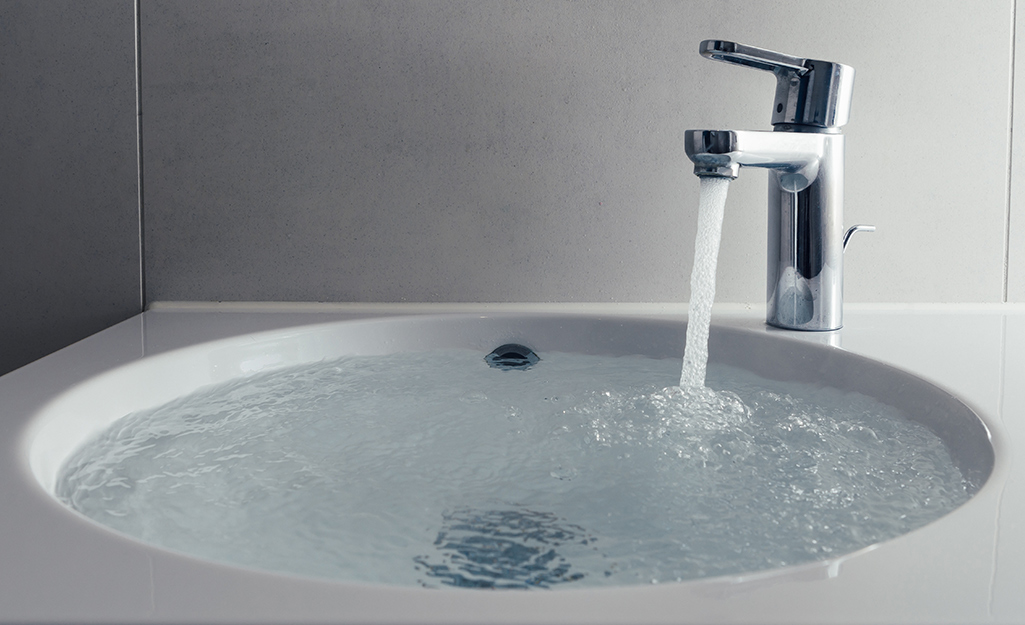 A clogged bathroom sink can be a major inconvenience and disrupt the daily routine of any household. The slow draining water can be frustrating and unhygienic, causing a build-up of grime and bacteria. If you are experiencing this issue, it is important to understand the possible causes and solutions to get your bathroom sink back in working order.
A clogged bathroom sink can be a major inconvenience and disrupt the daily routine of any household. The slow draining water can be frustrating and unhygienic, causing a build-up of grime and bacteria. If you are experiencing this issue, it is important to understand the possible causes and solutions to get your bathroom sink back in working order.
The Main Cause: Hair and Soap Build-Up
 The most common cause of a slow draining bathroom sink is a build-up of hair and soap residue. As we wash our hands and brush our teeth, strands of hair and soap scum can easily accumulate in the drain, causing a blockage. Over time, this build-up can become too much for the water to pass through, resulting in a slow draining sink.
The most common cause of a slow draining bathroom sink is a build-up of hair and soap residue. As we wash our hands and brush our teeth, strands of hair and soap scum can easily accumulate in the drain, causing a blockage. Over time, this build-up can become too much for the water to pass through, resulting in a slow draining sink.
Solution: Regular Cleaning and Maintenance
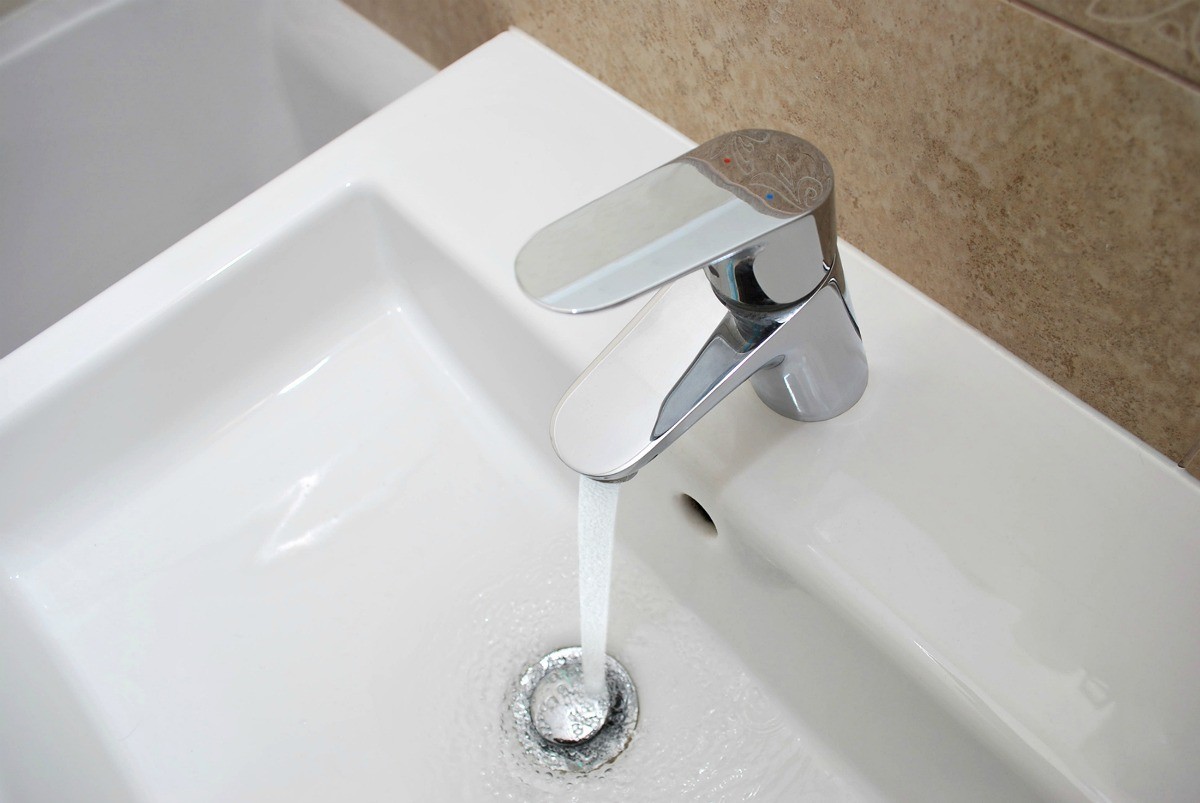 To prevent a clogged sink, it is important to regularly clean and maintain your bathroom sink. Use a drain guard to catch any hair and debris, and remove it after each use. You can also pour a mixture of hot water and vinegar down the drain once a week to help break down any build-up. Additionally, using a plunger can help to dislodge any stubborn clogs.
To prevent a clogged sink, it is important to regularly clean and maintain your bathroom sink. Use a drain guard to catch any hair and debris, and remove it after each use. You can also pour a mixture of hot water and vinegar down the drain once a week to help break down any build-up. Additionally, using a plunger can help to dislodge any stubborn clogs.
Other Possible Causes and Solutions
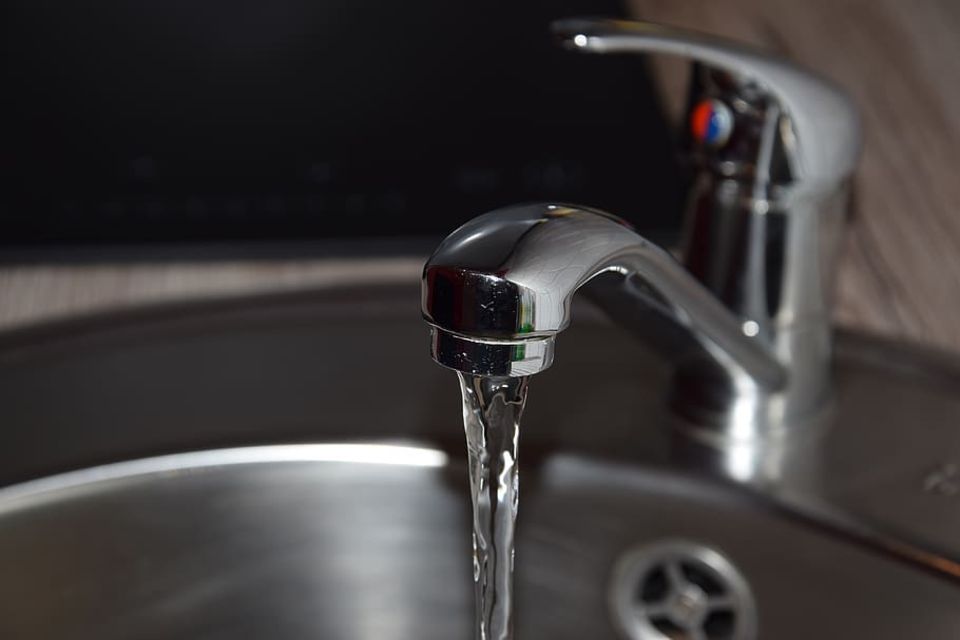 There are other factors that may contribute to a slow draining bathroom sink, such as a faulty or old drain pipe, or a blocked vent pipe. In these cases, it is best to call a professional plumber to assess and fix the issue. Another possible solution is using a chemical drain cleaner, but this should be done with caution and as a last resort, as it can be harmful to both your pipes and the environment.
There are other factors that may contribute to a slow draining bathroom sink, such as a faulty or old drain pipe, or a blocked vent pipe. In these cases, it is best to call a professional plumber to assess and fix the issue. Another possible solution is using a chemical drain cleaner, but this should be done with caution and as a last resort, as it can be harmful to both your pipes and the environment.
Incorporating Design and Functionality
 While dealing with a clogged bathroom sink may not seem like a design concern, it is important to choose a sink that is not only visually appealing but also functional. Consider installing a sink with a built-in overflow feature to prevent water from spilling over and causing a mess. You can also opt for a larger sink with a deeper basin to accommodate hair and debris without causing a blockage.
While dealing with a clogged bathroom sink may not seem like a design concern, it is important to choose a sink that is not only visually appealing but also functional. Consider installing a sink with a built-in overflow feature to prevent water from spilling over and causing a mess. You can also opt for a larger sink with a deeper basin to accommodate hair and debris without causing a blockage.
Conclusion
 In conclusion, a slow draining bathroom sink can be a nuisance, but with regular maintenance and the right design choices, it can be easily prevented. Remember to clean your sink regularly, use a drain guard, and seek professional help if needed. By incorporating functionality into your design, you can avoid future clogs and keep your bathroom sink working efficiently.
In conclusion, a slow draining bathroom sink can be a nuisance, but with regular maintenance and the right design choices, it can be easily prevented. Remember to clean your sink regularly, use a drain guard, and seek professional help if needed. By incorporating functionality into your design, you can avoid future clogs and keep your bathroom sink working efficiently.








:max_bytes(150000):strip_icc()/freshen-and-unclog-drain-with-baking-soda-1900466-22-bbf940b70afa4d5abef0c54da23b1d3f.jpg)

